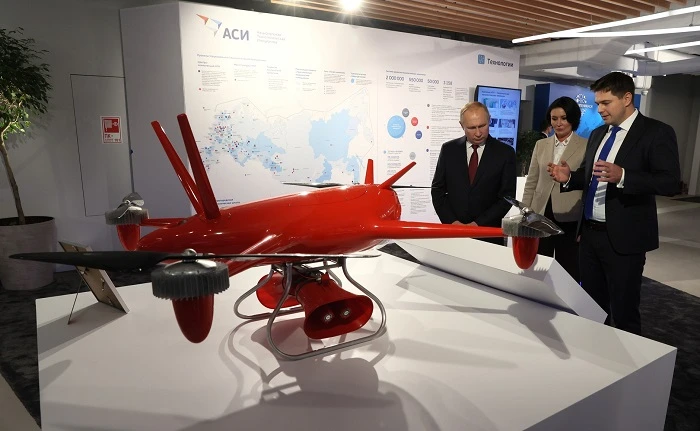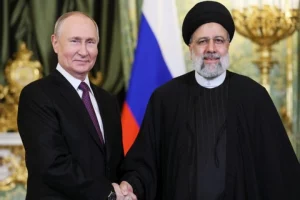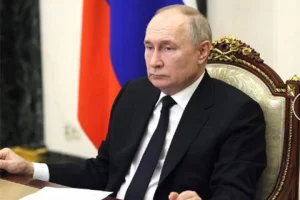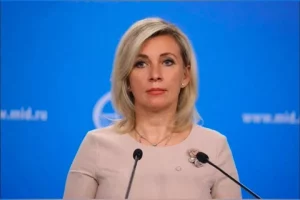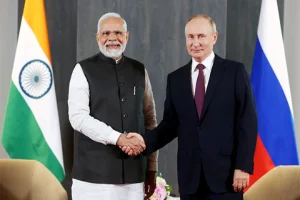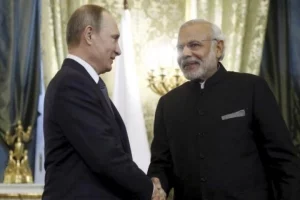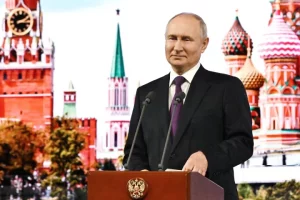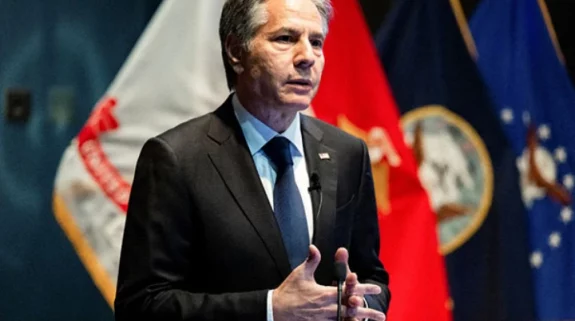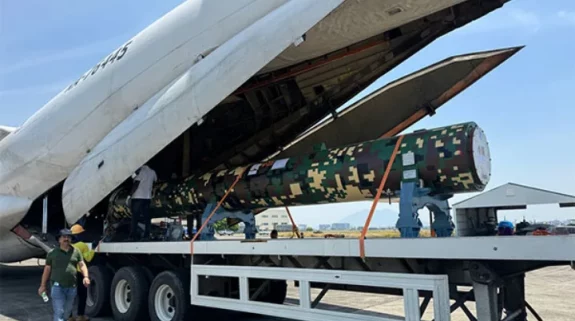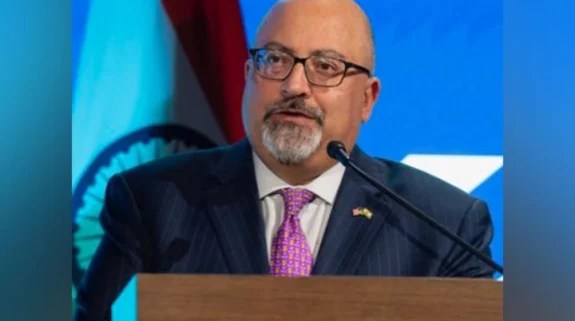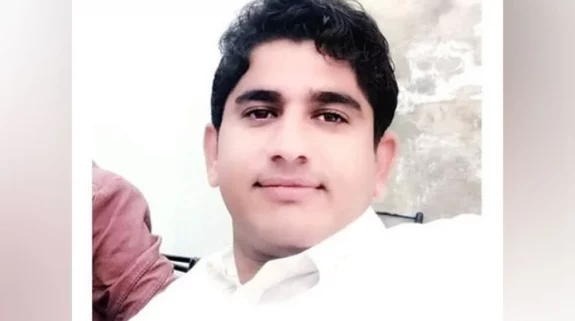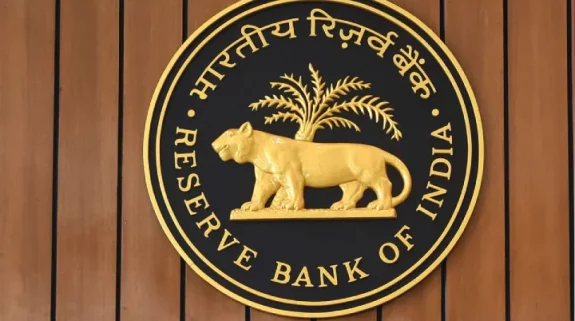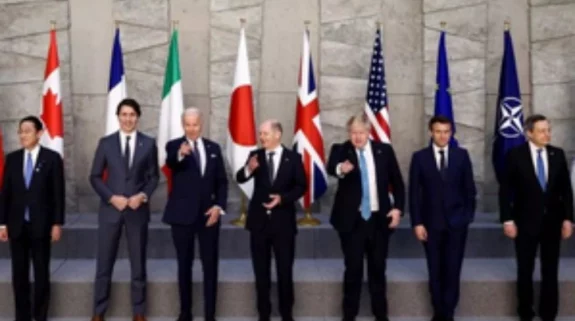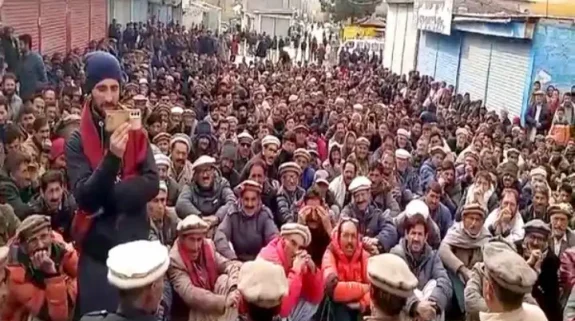India, along with China, Algeria, Egypt, Vietnam and Myanmar, remained amongst Russia's main partners in the field of military-technical cooperation during 2021 – a year which has been labeled as "extraordinary" for the country's defence capability by the Russian President Vladimir Putin.
At an annual collegium of the Russian Ministry of Defence in Moscow on Tuesday, Putin, also the Supreme Commander-in-Chief of the Armed Forces of Russia, took stock of the results achieved by his Generals and defined tasks for the future to them.
The head of state commended the Russian Armed Forces for carrying out "accurately, without failures" all the tasks facing them in 2021.
"The military-political situation in the world remains difficult, the potential for conflict has grown in a number of regions, and new hotbeds of tension have emerged," Putin said in his address to the leadership of Russian Armed Forces, representatives of state authorities and public organisations.

With the destabilization of the situation in Afghanistan creating the risks of exporting terrorism and drugs to the territory of the Central Asian states and beyond, Putin batted for an increased military-technical cooperation with the members of Shanghai Cooperation Organization (SCO), Collective Security Treaty Organisation (CSTO) and the Commonwealth of Independent States (CIS).
Currently, Russia's Defence Ministry cooperates with the armed forces of 109 countries of the world and continues to strengthen relations with its allies, including India.
Partnership in the defence sector, one of the main areas of India-Russia cooperation, is expected to get a further boost in 2022, especially after Putin's December 6 visit to New Delhi for the annual summit with Prime Minister Narendra Modi.
Russian Defence Minister General Sergei Shoigu, during his meeting with Defence Minister Rajnath Singh before the Modi-Putin summit, had highlighted how the privileged strategic partnership between the two countries has grown despite the difficult epidemiological situation.

"The interaction of the general staffs and the branches of the armed forces is strengthening, the exchange of military delegations is expanding. Work is underway in the field of military education," Shoigu had said while stressing that joint operational and combat training activities occupy a special place in military cooperation.
He also said that Russia and India maintain close military contacts in multilateral formats, primarily within the framework of the SCO and the meeting of ASEAN Ministers of Defence and Dialogue Partners (SMOA Plus).
Increasing combat capability of the Russian Armed Forces
Mentioning the main tasks to focus on next year, Putin said that the work on a large-scale modernization of the Russian army and navy continues with the share of modern weapons in the troops exceeding 71 percent, and 89 per cent in the strategic nuclear forces – the highest rate in the entire history of its existence.
"It is necessary to continue the planned, balanced equipping of troops with modern weapons and equipment, to pay special attention to the supply of high-precision complexes, the latest systems of reconnaissance, navigation, communications and control," he said.
During the annual meet, Shoigu detailed the "readiness of troops to perform tasks as intended" and also the measures taken to increase the combat capabilities of the Russian Armed Forces.
"The Strategic Missile Forces completed the rearmament of the first missile regiment to the Avangard missile system with intercontinental ballistic missiles equipped with hypersonic gliding cruise units. In two more missile regiments of the Strategic Missile Forces, the first launchers of the Yars missile complex were put on alert," said the Russian Defence Minister.
He said that the aviation strategic nuclear forces were replenished with four modernised strategic missile carriers Tu-95MS while the next nuclear-powered submarine of the Borey-A project, armed with Bulava ballistic missiles, has been accepted into the Navy.
Shoigu revealed that more than 2400 new and modernised models have been delivered to the ground forces with two new divisions – a motorised rifle and a tank, as well as a missile and anti-aircraft missile brigade – being deployed.
Russia's air defence and anti-missile forces have meanwhile received over 30 types of weapons, including the S-400 Triumph and S-350 Vityaz anti-aircraft missile systems.
A separate aviation regiment was formed, armed with MiG-31 aircraft with the Dagger hypersonic missile.
"The tests of the long-range unmanned aerial vehicle 'Altius-RU' have been completed, and the delivery of reconnaissance and strike systems 'Inokhodets' and 'Forpost' has begun," he informed the entire gathering, including Putin.
The Russian Navy has also received three modern submarines, four surface ships, 10 combat boats, 17 ships and support boats, as well as three coastal missile systems in 2021.
"State tests of the Zircon sea-based hypersonic cruise missile are nearing completion. Serial deliveries will begin next year," said Shoigu.
The Russian airborne forces have also been supplied with nearly 500 units of new and modernised equipment and 13,000 sets of landing equipment and parachute systems.
The Defence Minister listed putting on duty intercontinental ballistic missiles Yars, Avangard and Sarmat as one of the major tasks for 2022 besides supplying the nuclear forces with two strategic missile carriers.






